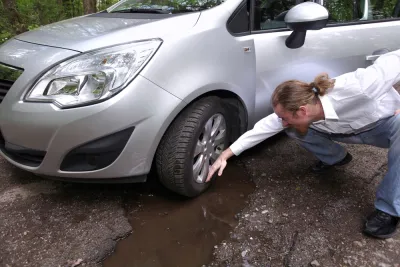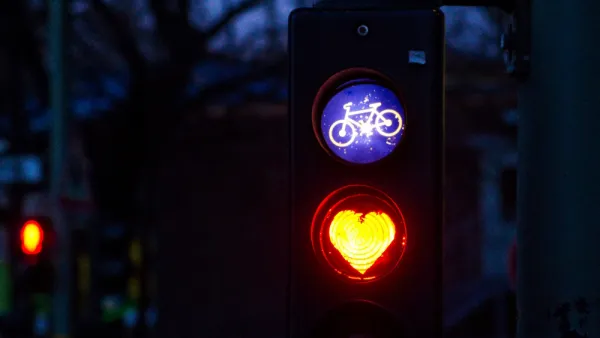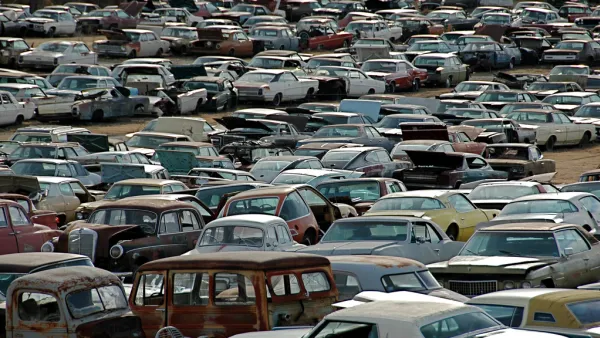If you thought inflation and fuel efficiency, along with politicians unwillingness to raise gas taxes were the main causes of America's decaying road and bridges, S&P adds another contributing factor—millennial transportation preferences.

Millennials are not directly responsible for that pothole you may have just driven through - but their "driving and vehicle purchasing habits—or lack thereof—greatly contribute to the decreased collection of the federal gas tax," writes Kathleen Burke for MarketWatch. And the Highway Trust Fund, where those gas taxes are deposited, is what funds much of the road repair on the interstate highway system.
The millennial blame can be found in S&P's Oct. 19 economic research report, "Millennials Are Creating Unsafe Conditions On U.S. Roads--But Not In The Way You Might Think (pdf)," written by Beth Ann Bovino and Geoffrey E Buswick,
Burke analyzes rates of licenses issued, VMT, public transit usage, and millennial preference for green cars. She omits biking and carshare though—both greatly associated with millennial travel preferences.
But it's not just preferences that are responsible for millennials not propping-up the Highway Trust Fund as other generations have done, observes the Financial Times on the new report.
A major one is the economy: Wages among younger workers have been depressed, while unemployment and underemployment remain high. On top of that, the generation which was born from 1982-2000, also tends to start families later in life, perhaps halting moves into the suburbs where driving is more common.
S&P's report contradicts, to some extent, Yonah Freemark's post that we can't expect millennials to save us from our auto-dependent ways. We may still be a nation of drivers, regardless of millennial travel preferences, but their transportation biases are impacting our ability to pay for road upkeep.
Hat tip to Jennifer Scholtes, transportation reporter for POLITICO Pro.
FULL STORY: Too many potholes? Blame millennials

National Parks Layoffs Will Cause Communities to Lose Billions
Thousands of essential park workers were laid off this week, just before the busy spring break season.

Retro-silient?: America’s First “Eco-burb,” The Woodlands Turns 50
A master-planned community north of Houston offers lessons on green infrastructure and resilient design, but falls short of its founder’s lofty affordability and walkability goals.

Delivering for America Plan Will Downgrade Mail Service in at Least 49.5 Percent of Zip Codes
Republican and Democrat lawmakers criticize the plan for its disproportionate negative impact on rural communities.

Test News Post 1
This is a summary

Test News Headline 46
Test for the image on the front page.

Balancing Bombs and Butterflies: How the National Guard Protects a Rare Species
The National Guard at Fort Indiantown Gap uses GIS technology and land management strategies to balance military training with conservation efforts, ensuring the survival of the rare eastern regal fritillary butterfly.
Urban Design for Planners 1: Software Tools
This six-course series explores essential urban design concepts using open source software and equips planners with the tools they need to participate fully in the urban design process.
Planning for Universal Design
Learn the tools for implementing Universal Design in planning regulations.
EMC Planning Group, Inc.
Planetizen
Planetizen
Mpact (formerly Rail~Volution)
Great Falls Development Authority, Inc.
HUDs Office of Policy Development and Research
NYU Wagner Graduate School of Public Service





























